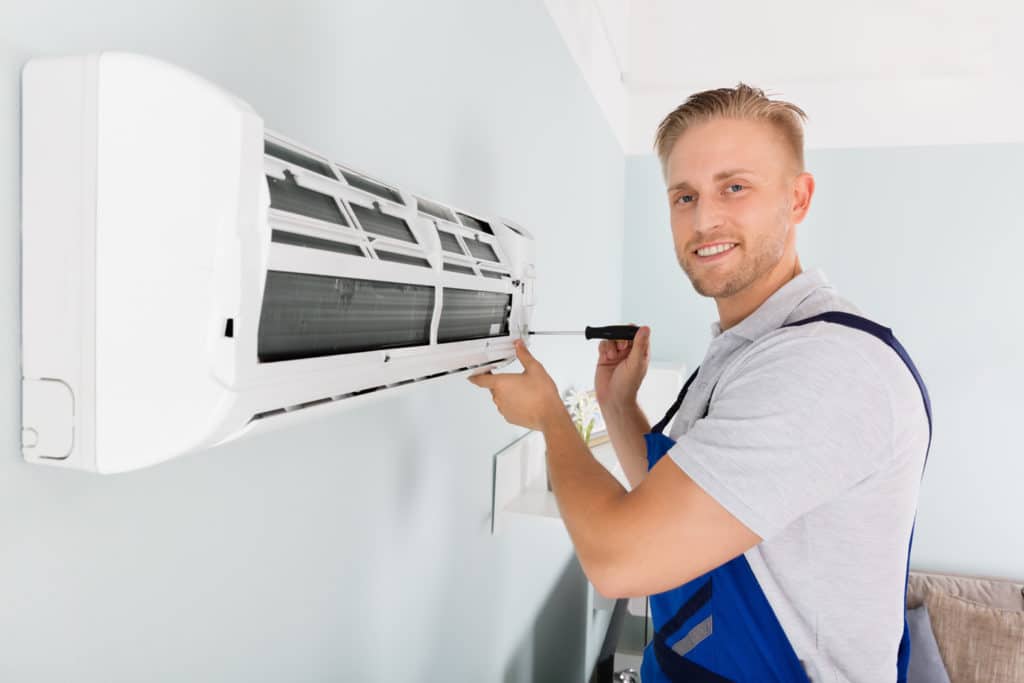HVAC, commonly known as HVAC, plays a critical role in maintaining comfortable indoor environments in both residential and commercial spaces. As you move through any office, you might not think twice about the systems working unobtrusively behind the curtains to ensure that the air is at a comfortable temperature and quality. However, grasping the principles of heat transfer that govern these systems can greatly enhance our capacity to manage them effectively.
In this guide, we will delve into the mechanics of HVAC, uncovering how these systems function and why they are indispensable. From air conditioner for newcomers to tips on optimal maintenance and energy usage, we will discuss various aspects of HVAC systems. Whether you're thinking about an upgrade, looking to improve indoor air quality, or simply wanting to lower your energy bills, this piece will provide the fundamental knowledge you need to make informed decisions about your heating and cooling systems.
Grasping HVAC Systems
HVAC, Cooling, and Heating , commonly known as HVAC, represents an essential system employed for providing comfort in interior spaces. At its heart, an HVAC configuration operates by controlling the heat, dampness, and air standards of areas in houses and business facilities. It does this through a set of linked components that carry out the required roles of heating, cooling, and breathability. Whether it’s a home setting or a big office building, understanding how these installations work is crucial for effective climate control.
The main elements of an HVAC system include the heating unit, chill source, ventilation system, and the temperature control. Heating can come from various options, including heat sources, heating pumps, or heating boilers, which produce heat during colder seasons. For cooling, cooling units or devices like thermal pumps are employed to eliminate heat from interior air, creating a refreshing environment in the warm months. Ventilation plays a critical role in providing clean air circulates through the location, aiding to preserve air standards and get rid of suspended impurities.
Moreover, proper upkeep is essential to guaranteeing HVAC installations work efficiently and last for extended periods. Scheduled maintenance checks can pinpoint frequent issues such as blocked filters or freon escapes before they worsen into more significant issues. Understanding how these systems function not only helps homeowners and business owners make informed judgments about operation and maintenance but also equips them to establish pleasant residential and professional spaces year-round. spintax #### Common HVAC Issues and Solutions
Homeowners often experience a range of HVAC issues that can disrupt comfort and efficiency. One common issue is inadequate heating or cooling. This can occur due to a defective thermostat, clogged ducts, or low refrigerant levels. To tackle this problem, start by checking the thermostat settings and changing batteries if necessary. Next, inspect and clean air filters and make sure that vents are unobstructed. If issues persist, it may be necessary to call a certified technician to inspect for refrigerant leaks or system malfunctions.

Another common concern is excessive noise coming from the HVAC unit. Noises like rattling, creaking, or hissing can suggest various issues, from wiggly components to malfunctioning motors. Residents should first inspect the outside unit for any debris that might be causing vibrations and ensure all screws and fasteners are tight. If the noise is severe or continuous, it is advisable to seek professional help to diagnose and resolve the underlying issue, as ignoring it can result in more serious damage.
Finally, poor indoor air quality is an aspect that many do not recognize as directly connected to HVAC systems. Problems such as dust buildup and allergens can stem from contaminated air filters or poor ventilation. To improve air quality, routine maintenance is essential, including regular filter changes and duct cleaning. Installing air purifiers and selecting the right filters for your system can greatly enhance indoor air quality and overall comfort in the home.
Energy Effectiveness and Innovations in HVAC
The HVAC industry has witnessed major progress in energy conservation, primarily due to the increasing demand for eco-friendly options. Modern units are designed to maximize energy consumption while maintaining comfort in residential spaces and business buildings. Innovations such as adjustable speed motors, zoned heating and cooling, and sophisticated heat exchangers permit HVAC systems to operate more efficiently, reducing energy expenditure and minimizing electricity expenses.
Smart technology integration is another key innovation driving energy conservation in HVAC systems. Smart temperature controls and home management technologies provide residents with unparalleled control over their warmth and air conditioning preferences. These gadgets can learn user habits, adjust settings automatically based on presence, and provide instant energy consumption information, all contributing to a more efficient HVAC operation. As intelligent gadgets continue to advance, they will take an increasingly critical role in energy efficiency.
Additionally, renewable energy sources, such as solar-powered HVAC systems, are changing the industry. These systems harness solar energy to minimize reliance on traditional power options, offering both environmental benefits and cost savings. Ground-source heating and cooling is another innovative solution, utilizing the earth's stable heat to provide sustainable climate control. As these technologies become more available, residents and businesses can make knowledgeable decisions that align with their dedication to sustainability and energy efficiency.
